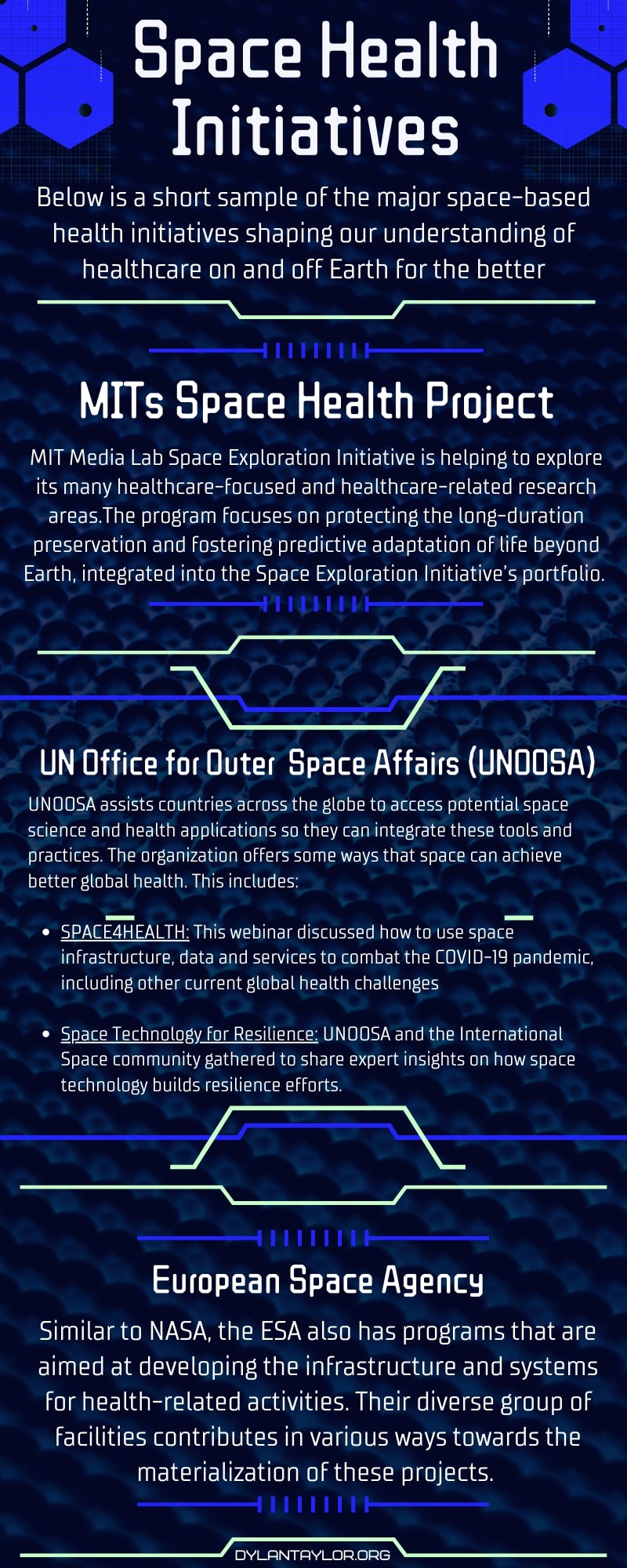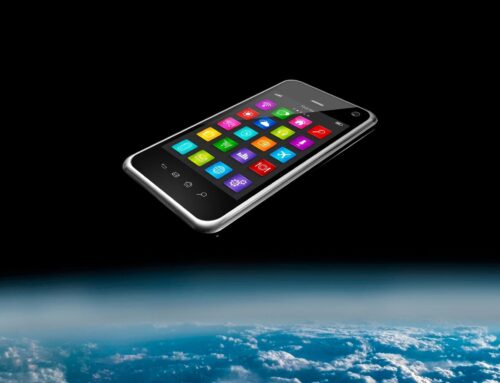Space health initiatives and their applications have provided innovative tools to improve the lives of millions of people across the globe. Space technologies accelerate sustainability in many areas. The healthcare sector, in particular, has benefited from many discoveries in space. Several research projects and other initiatives take aim at accelerating healthcare discoveries in space that will help us improve our time in the stars and on Earth.
Below is a short sample of the major space-based health initiatives shaping our understanding of healthcare on and off Earth for the better:
MIT’s Space Health Project
MIT Media Lab Space Exploration Initiative is helping to explore its many healthcare-focused and healthcare-related research areas. The program focuses on protecting the long-duration preservation and fostering predictive adaptation of life beyond Earth, integrated into the Space Exploration Initiative’s portfolio. The research helps build upon a future where space-faring humans can survive and live in LEO, or the Moon, Mars and beyond.
As part of this initiative, the need to enhance and improve healthcare treatment practices on Earth has spearheaded a long tradition of NASA spinoffs creating benefits to broader populations. MIT Space Health project aims to spearhead creative, interdisciplinary focus on space health innovation, just as the main initiative cross-cuts technological development across multiple fields, from human-robotic interaction to synthetic neurobiology.
UN Office for Outer Space Affairs (UNOOSA)
UNOOSA assists countries across the globe to access potential space science and health applications so they can integrate these tools and practices. The organization offers some ways that space can achieve better global health. Their initiatives include:
- SPACE4HEALTH: This webinar discussed how to use space infrastructure, data and services to combat the COVID-19 pandemic, including other current global health challenges. Twenty representatives from space agencies, the private sector, universities, and research institutions joined members of the UN and UNOOSA to further educate everyone on global health goals and solutions.
- Space Technology for Resilience: UNOOSA and the International Space community gathered to share expert insights on how space technology builds resilience efforts. To achieve sustainable development in healthcare, these outlined capabilities will help prepare and inform people and build upon the value of resilience, especially during the COVID-19 pandemic, with the mission of better preparing people to address hazards and save lives.
European Space Agency
Similar to NASA, the ESA also has programs that are aimed at developing the infrastructure and systems for health-related activities. Their diverse group of facilities contributes in various ways towards the materialization of these projects.
The maintenance of human-crewed spacecraft and satellite communication infrastructure requires highly reliable technologies and operational experience that have analogies with telemedicine applications where distant medical facilities or devices must be connected with high assurance. For example, search and rescue telemedicine services require secure, reliable platforms for patients in remote areas, disaster victims, rescue workers and more. Ground control centers with integrated linking operations support this infrastructure gained through many years of space operations in human spaceflight and satellite communication control.







